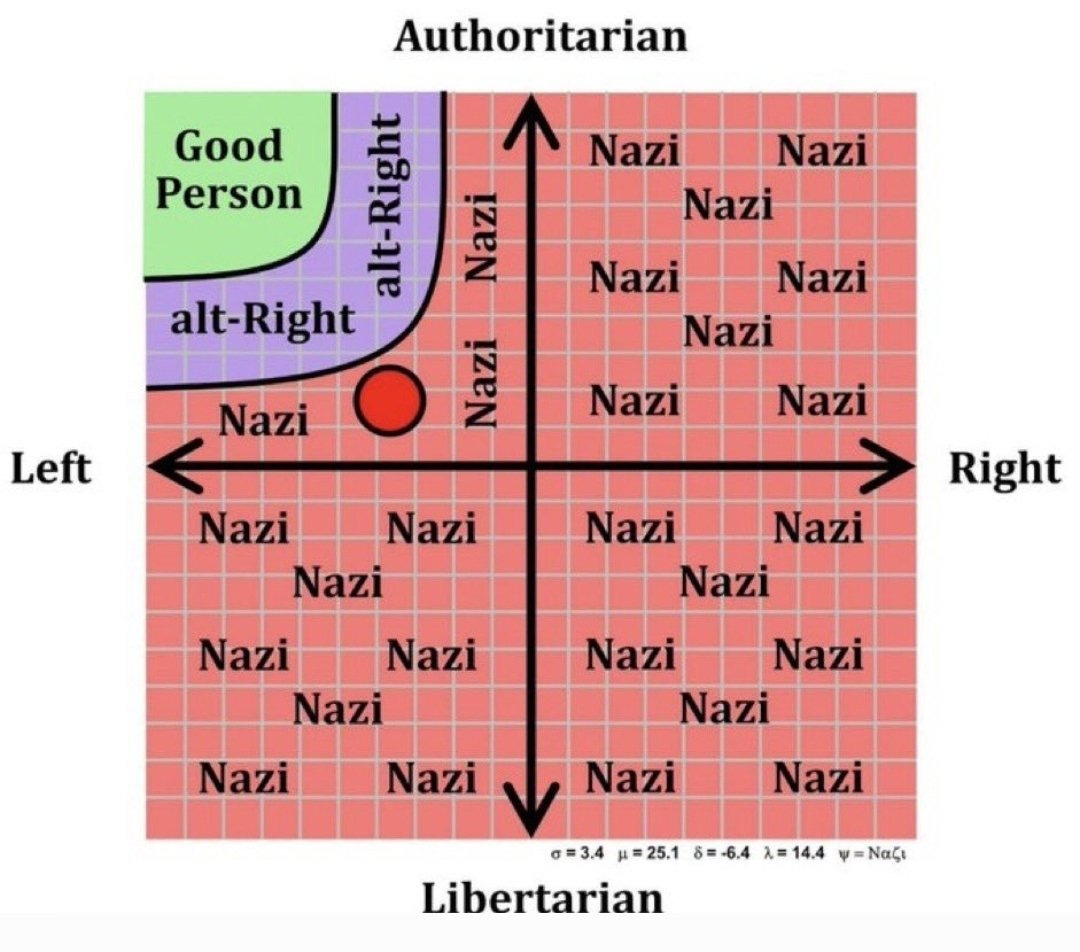When claims of far-right are far wrong
A growing trend of mislabeling is hurting our political discourse.
In the current tornado of New Zealand/Aotearoa's political discourse, a troubling trend has emerged, one of many threatening the already fragile balance of reasoned debate and civil discussion. This trend involves the reckless and, frankly, intellectually lazy habit of slapping the label 'far-right' or 'alt-right' onto centre-right parties, a mischaracterisation that not only distorts reality but verges on the dangerous.
It's a phenomenon that, were it not so damaging, would be as laughable in its absurdity as calling the Labour Party ‘communist’.
The cavalier branding of New Zealand's centre-right parties as 'far-right' or 'alt-right' is not just a failure of terminology; it's a failure of understanding. It betrays a lack of engagement with the reality behind the meme of issues as portrayed or lobbied in the media and social media, and a dismissal of the potential for constructive political engagement.
I appreciate this note will not resonate nicely with the partisan left, and to an extent, I sympathise. I don’t agree with all the coalitions policy positions, but it’s a coalition - MMP means New Zealanders gets an amalgamation of policy positions (and reality vs ideology), whether its a centre-right or centre-left Government.
I believe the coalition are ‘far wrong’ on some things, but 'far-right' or 'alt-right'? No.
Centre-right parties in New Zealand broadly advocate for economic prudence, individual liberty, and a government that knows its place. However, the fraught discussion around The Treaty of Waitangi/Te Tiriti o Waitangi has opened the lid on our underlying need to both reconcile our past and chart our future together as a country. Of course, this means different things to different individuals and groups, creating predictable tensions, debate, lobbying, activism, constructive discussion, and unhelpful ignorance.
Even then, this is a far cry from the shadowy spectres of fascism and racism that the terms 'far-right' and 'alt-right' evoke. These centre-right parties champion equality under the law and the sanctity of free speech, principles that are anathema to the genuine fringes of the right and left wings where intolerance and authoritarianism fester.
To lump moderate voices with extremists is not just a factual error; it's a strategic blunder. It alienates potential allies by casting them as villains, pushing the political conversation into ever more polarised and unproductive corners. The misuse of these labels blurs the lines between legitimate political discourse and the dangerous ideologies of the real far-right, thereby diminishing the impact and seriousness when confronting genuine extremism.
Moreover, this habit of mislabeling is not just an academic concern—it has real-world implications. It poisons the well of public discourse, making it all but impossible for meaningful dialogue and compromise. In a world desperately in need of nuanced thought and cooperation, this reckless branding serves only to deepen divides, entrench stereotypes, and hinder the progress towards a more cohesive society.
Consider some of the key differences between genuine far-right political parties and New Zealand's centre-right parties:
Ideological Foundations:
Far-right parties often ground their ideology in extreme nationalism, xenophobia, and the rejection of democratic principles, sometimes veering into authoritarianism or fascism.
Centre-right parties in New Zealand typically advocate for conservative and liberal democratic values, emphasising economic freedom, individual responsibility, and limited government intervention, within a democratic framework. Indeed they have staked some of there strategy on attracting foreign investment via home ownership and business.
Economic Policies:
Far-right parties may support protectionist economic policies, opposing globalisation and free trade based on nationalist sentiments.
Centre-right parties generally champion free-market capitalism, globalisation, free trade, and fiscal conservatism, aiming for economic growth and prosperity.
Immigration Policies:
Far-right parties often adopt hardline stances on immigration, advocating for strict immigration controls or policies that prioritise certain ethnic or cultural groups, and may promote social policies that are exclusionary or discriminatory.
Centre-right parties focus on more moderate social policies, supporting controlled immigration that benefits the economy, and championing social cohesion while respecting multiculturalism.
Approach to Democracy and Pluralism:
Far-right parties may exhibit skepticism or outright hostility towards democratic norms, pluralism, and the protection of minority rights, sometimes undermining the rule of law and freedom of the press.
Centre-right parties uphold the principles of democracy, the rule of law, the importance of civil liberties, and the protection of rights for all citizens, including minorities.
International Relations:
Far-right parties can be isolationist, skeptical of international institutions and agreements, and often espouse a unilateral approach to foreign policy based on national interest.
Centre-right parties are generally more open to international cooperation, supporting alliances, and participation in international institutions, while also promoting national interests.
What's needed now, more than ever, is a return to a discourse that values precision in language, respects differing viewpoints, and looks for solutions and pragmatism over slogans, memes and partisanship. The challenges facing our society are too significant to be left to the mercy of those who would rather score cheap political points than engage in honest debate.
For the sake of New Zealand's future, it's a trend that must be reversed. Only through clear-eyed analysis and respectful discourse can we hope to navigate the current and future complexities of modern governance and society.
As always, stay curious.


